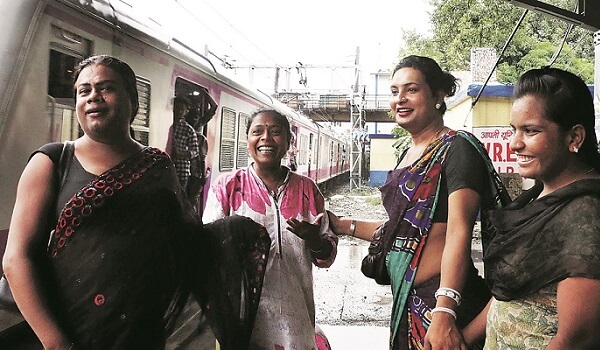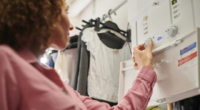Transgender people continue to face discrimination and violence in many countries, leading to exclusion and adverse impacts on their lives and communities. Despite some legal and social advances in recent years, they still face severe discrimination, stigma, and systemic inequality, which prevents them from using public transportation safely and comfortably. In many public transports, there are separate seats for male, female, elderly, and differently-abled people, but there is no reservation for the third gender, which further restricts the mobility of transgenders. Adding separate facilities at sex/gender-neutral forms for reserving seats and berths for trans-genders while booking tickets online or offline can make their lives easier. Adding separate reservation options for the third gender in the ticketing system of transportation providers should be a necessary step towards creating equal opportunities and freedom for them. On Transgender Day of Visibility on March 31, 2023, we must recognise the contributions, successes, and relentless resilience of the transgender community in standing tall and strong in the face of injustice.
Options for Transgender Mobility: An In-Depth Review
Every year on 31st March, we celebrate Transgender Day of Visibility to recognize the resilience and achievements of the transgender community. While progress has been made in the past two decades, discrimination and violence against lesbian, gay, bisexual, transgender, and intersex (LGBTI) individuals persist in many countries. Such exclusion has negative impacts on both the lives of LGBTI people and the communities and economies in which they live. In order to address this, we must celebrate and empower the trans-community.
Despite the increasing visibility of trans-gender individuals in popular culture and daily life, they still face severe discrimination, stigma, and systemic inequality. Here are some of the specific challenges that the trans-gender community faces when it comes to mobility:
Limited Access to Public Transport
Access to public transport is crucial for economic development, providing people with the means to access job opportunities, education, recreation, and medical facilities. However, for trans-gender individuals, accessing public transport can be a difficult and even dangerous experience due to discrimination, bigotry, and harassment. This lack of accessibility not only violates their right to freedom of movement but also creates a hindrance in accessing their right to work, education, and health. For women and trans-gender individuals to overcome barriers to taking up employment opportunities in the transport sector, trust must be instilled in the beneficiaries and their families. To achieve this, the government must improve access to public transport and provide safer mobility options for all citizens.
Discrimination in the Transport Sector
Trans-gender individuals also face discrimination in the transport sector. They may be denied job opportunities or face harassment and mistreatment from colleagues or passengers due to their gender identity. Such discrimination not only affects the individual but also has negative impacts on the entire transport sector.
To address these issues, society must work towards a greater understanding and acceptance of the trans-gender community. We need to recognize the unique challenges that they face and advocate for protected rights and individual freedom. Let us celebrate diversity and empower the trans-community to reach their full potential.
Improving Public Transport for Transgender Individuals
Transgender individuals face many challenges when it comes to accessing public transportation. Systemic hurdles prevent them from using public transport and violate their rights to dignity, freedom of movement, equal opportunity, and non-discrimination. They also face hostility, abuse, and harassment from fellow passengers and staff members.
Tamil Nadu Government’s Initiatives
State governments are starting to recognize the importance of improving public transport for transgender individuals. For instance, the Tamil Nadu government announced free bus travel for the third gender starting in June 2021. Additionally, in August 2022, the Tamil Nadu government published a glossary of LGBTQIA+ terms, showing its commitment to inclusivity and diversity.
Incentives for Transgender Individuals
Experts suggest that incentives for free public transport should be extended to transgender individuals, just as they have been for cis-het women. Easy access to food, housing, public employment, and education requires unhindered service to public transport. Setting up separate colleges in arts, science, engineering, or law for transgender individuals and providing them with job opportunities can prevent them from turning to sex work.
Challenges and Risks
Transgender individuals face many challenges and risks when using public transportation. They often face hostility, abuse, and harassment from both men and women. They avoid taking buses or trains because they know they will be targeted. In some cases, the hostility can escalate to physical violence. During security checks, they are often subjected to invasive frisking.
Need for Inclusive Infrastructure
Public transport infrastructure can further restrict the mobility of transgender individuals. Toilets at metro stations and other terminals are often binary, making it difficult for transgender individuals to use them comfortably. To improve public transport for transgender individuals, activities like frisking should be made touch-free, irrespective of gender.
In conclusion, society needs to work towards creating a more inclusive environment for transgender individuals, including in public transport. The government should take steps to improve access to public transport and provide safer mobility options for all citizens, regardless of their gender identity. By doing so, we can empower transgender individuals and help them reach their full potential in society.
Making Public Transport More Inclusive for Transgender Individuals
Transgender individuals face many challenges when it comes to accessing public transportation. They often have to request fellow passengers to adjust or make do with uncomfortable seating arrangements. Allocating reserved seats to transgender individuals can help them achieve better reliability and comfort over public transport.
Gender Bias in Transport Infrastructure
Currently, public transports have separate seating for male, female, elderly, and differently-abled individuals. However, there is no separate reservation of seats for transgender individuals. Neither the government nor private sector-owned buses, trains, or airbuses have attempted to add the third gender reservation into their ticketing system. This gender bias needs to be addressed to make public transport more inclusive for all individuals.
Lack of Third Gender Reservation in Online Ticketing
Online ticketing service providers and respective software providers have not considered adding a separate reservation option for the third gender category in their reservation process. This lack of inclusion is disheartening and goes against the United Nations Sustainable Development Goal 11.2, which calls for providing safe, affordable, accessible, and sustainable transport systems for all, including the LGBTQI+ community.
Improving Access to Public Transport for All
To make public transport more inclusive for transgender individuals and other vulnerable groups, governments and private sector companies must take action. They should provide access to safe, affordable, and sustainable transport systems for all, expanding public transport with special attention to the needs of those in vulnerable situations, women, children, persons with disabilities, older persons, and the LGBTQI+ community.
Transgender individuals are not errors in society, and their identity should be respected. Allocating reserved seats for them and improving access to public transport can go a long way in creating a more inclusive society. Gender bias in transport-related infrastructure must be addressed, and third gender reservation should be made available in online ticketing systems. By doing so, we can make public transport more accessible, safer, and comfortable for everyone.
Addressing Discrimination Faced by the Transgender Community in Public Transportation
The Tamil Nadu government has taken a step forward in the inclusion of the transgender community by adding Padma Shri Dr. Narthaki Nataraj, a transgender person, in the State planning commission for the first time in India. However, more needs to be done to address the discrimination faced by the transgender community in public transportation.
Discrimination Against the Transgender Community
The transgender community has faced discrimination and harassment worldwide, be it in workplaces, schools, or societies. It is crucial to recognize their contributions, successes, and resilience in standing tall and strong in the face of injustice on Transgender Day of Visibility on March 31, 2023. Through this day, we hope to induce moral responsibility, tolerance, and lift restrictions on the rights of transgender people.
Inclusive Policies for Transgender People in Public Transport
As an International Public Transport Expert, it is my recommendation that necessary orders be passed to Transport department officials. It is necessary to provide one separate seat or berth reservations to transgender individuals in all modes of public transport, similar to those given to differently-abled persons and senior citizens. Additionally, facilities should be added for sex/gender-neutral forms for reserving seats as “Trans-Gender- (TG)” while booking tickets online or offline for traveling in public transport. Private ticketing service providers and respective technology providers should also adopt the same policy.
In conclusion, it is essential to make public transport more inclusive and accessible for all individuals, including transgender individuals. By taking the necessary steps, we can make a significant impact on the lives of the transgender community, creating a more equitable and just society for all.
Don’t miss interesting posts on Famousbio










